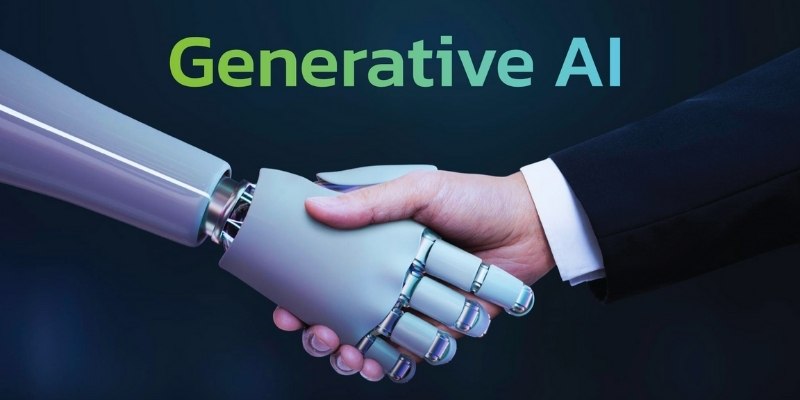Writing SQL queries might be challenging for non-programmers. Many company users lack coding knowledge but require data nonetheless. By translating natural language into SQL queries, GPT models help make data more accessible. Users have questions; the model creates the right SQL query. This method lowers mistakes, saves time, and accelerates decision-making. Without depending on technical staff, companies may rapidly acquire insights.
GPT models are included in many contemporary technologies to improve query generation and simplify data analysis. However, there are difficulties, including query accuracy and handling intricate database systems. However, GPT-powered technologies are changing how companies connect with data. This article will discuss these models and their advantages, drawbacks, and main applications, stressing their influence on data accessibility.

Understanding GPT Models for SQL Conversion
Using artificial intelligence, GPT models produce code, including SQL queries, from text. Their training in large programming languages enables them to identify trends in SQL queries. This instruction enables them to convert requests in normal language into exact database commands. When a user questions something, the model examines the input and generates SQL. For instance, If a user asks, "Show me sales from last month," the model might create the following search:
SELECT * FROM sales WHERE date >= '2024-02-01' AND date <= '2024-02-29';
This capacity streamlines query writing for non-technical users. Rather than learning SQL syntax by heart, customers can clearly state their data requirements in English. The model then creates precise SQL commands, lowering mistakes and saving time. GPT-powered solutions let companies increase data accessibility, enabling consumers to make wise decisions without depending on technical expertise.
Benefits of Using GPT Models for SQL Queries
GPT models simplify SQL query generation, therefore enabling non-technical users to access data retrieval.
- Saves Time and Effort: Especially for complicated searches, manually writing SQL can be labor-intensive. GPT models greatly cut the time needed to access data by generating searches in seconds.
- Reduces Human Errors: Manual SQL writing often produces syntactic problems or erroneous logic. GPT models minimize errors and guarantee data accuracy by following set patterns to produce exact searches.
- Improves Accessibility: Without understanding SQL syntax, non-technical users have easy access to and data analysis capability. They naturally ask inquiries in English, and GPT models interpret those into SQL searches.
- Enhances Productivity: Data experts should concentrate on gaining understanding rather than conducting searches. GPT models handle the coding so that users may devote more time to analysis and strategic decision-making.
- Supports Various Databases: Many GPT-powered applications fit several database systems. This adaptability helps users easily search several data sources, improving the efficiency and adaptability of database management.
Challenges of Using GPT Models for SQL Conversion
GPT models simplify SQL generation, but they also come with issues that could compromise dependability and accuracy.
- Handling Complex Queries: GPT models perform well with simple searches, but generating sophisticated SQL statements might be challenging. Inquiries using aggregations, several joins, and nested subqueries could cause mistakes.
- Data Security Concerns: Certain GPT models search the cloud, which raises privacy and security issues about data. If sensitive material is leaked, compliance problems could follow.
- Query Optimization Issues: SQL queries created might not always be best for huge databases. Effective searches slow down database performance, therefore affecting analysis times. Reviewing and enhancing searches is a common need for database managers looking to increase execution speed and efficiency.
- Understanding Business Context: GPT models could find industry-specific language or unusual business logic difficult, resulting in erroneous searches. Training models using domain-specific data, honing prompts, and supplying organized input helps increase accuracy and fit with corporate goals.

Use Cases of GPT-Based SQL Generation
GPT-based SQL generation is changing data access by allowing users to rapidly and effectively obtain data.
- Business Intelligence and Reporting: Businesses use GPT models to create SQL queries for analytics and reporting. Users ask inquiries in plain language, and the model generates correct searches for dashboards. It enables decision-makers to access important insights without SQL knowledge.
- Customer Support and Chatbots: Real-time client data retrieval via GPT-powered chatbots helps support staff. These bots instantly retrieve pertinent information by creating SQL searches based on user questions. It increases reaction times and customer service effectiveness.
- Data Analysis for Marketing: Marketing teams examine consumer behavior and campaign performance using SQL searches produced by artificial intelligence. GPT models enable data-driven marketing strategies by allowing them to extract important insights rapidly without technological skills.
- Finance and Accounting: Finance teams gather transaction data, track spending, and examine financial patterns using GPT-generated searches. It improves financial judgment, forecasting, and budget monitoring.
- Healthcare Data Retrieval: Doctors and researchers probe patient records using natural language. GPT models create SQL queries that let medical experts quickly access important information for diagnosis, treatment planning, and research.
Future of GPT in SQL Query Generation
The rapid advancement of artificial intelligence technologies will produce more exact, efficient SQL queries in the next GPT models. These models will guarantee more accuracy in query generation by improving understanding of business-specific jargon. They will also fit more easily with database management systems, hence optimizing SQL production and accessibility. Writing SQL searches will get faster and smarter as artificial intelligence develops. Instant data retrieval by users will help to lower reliance on technical specialists.
Better natural language processing will help interpret searches, reduce mistakes, and improve query structures. Companies will be more comfortable with AI-driven SQL generation as AI security develops. Compliance steps, access control, and improved encryption will help solve data privacy issues. More companies will thus include AI-powered solutions to simplify data retrieval. GPT-based SQL generation will transform data accessibility and enable companies to make more effective decisions informed by data.
Conclusion:
GPT models let users get database information without coding knowledge, facilitating SQL query generation. It lowers errors, speeds up data access, and sharpens decision-making. Easy report generation by companies helps to improve effectiveness. However, issues include complicated searches, security concerns, and query optimization calls for attention. Notwithstanding these obstacles, SQL query generation guided by artificial intelligence is the direction forward. As artificial intelligence develops, GPT models will become more accurate, safe, and efficient. More companies will embrace these methods for flawless data access.











